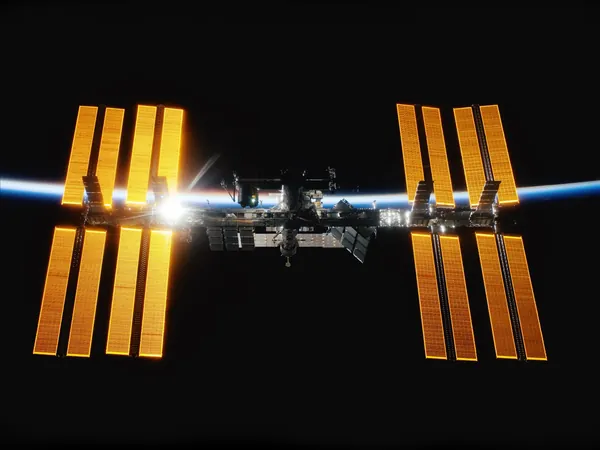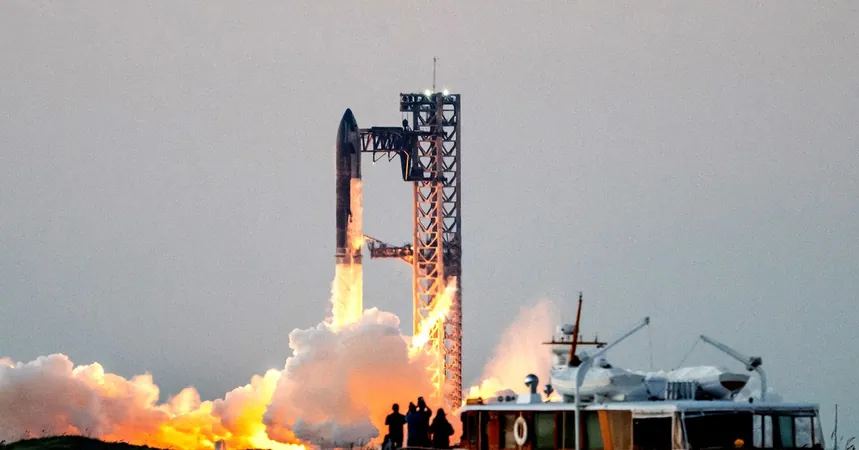
Space Research: Unveiling the Link Between Spaceflight and Blood Health!
2024-11-06
Author: Daniel
Space Research: Unveiling the Link Between Spaceflight and Blood Health!
The International Space Station (ISS) stands as a testament to human ingenuity, providing a unique platform for scientific exploration in an environment where human survival is a challenge. While the ISS serves as a beacon of hope for future space missions, the health risks associated with extended space travel continue to loom large. Among these concerns is the impact of microgravity on astronauts' blood health, which researchers are now exploring in unprecedented detail.
Blood Clots in Space: A Growing Concern
It has long been understood that astronauts face an increased risk of developing blood clots during their missions, particularly during longer stays aboard the ISS. Dr. Matthew Rondina, a professor of internal medicine and pathology at the University of Utah Health, emphasizes the growing concern: "As the duration astronauts spend in space increases, we believe the risk of blood clots continues to accumulate." Blood clots in space pose serious health threats that can complicate the already complex caregiving logistics.
In collaboration with NASA astronauts, a dedicated research team is set to investigate how spaceflight affects blood cells, focusing specifically on platelets—cells crucial in the clotting process—and megakaryocytes, the bone marrow cells responsible for producing platelets. These studies, conducted in the isolating environment of the ISS, aim to shed light on the changes that occur to blood cells under microgravity.
Pioneering Research on the Final Frontier
The groundbreaking research initiative recently launched cells into space on November 4, 2024, after extensive preparation. Before reaching the ISS, scientists conducted simulations of space conditions on Earth, exposing blood cells to cosmic rays in particle accelerators and subjecting them to simulated microgravity in rotating containers. Initial experiments have revealed concerning alterations in platelet function, implicating genes related to inflammation and immune response.
Understanding how these changes manifest in real space conditions will be crucial. Dr. Rondina explains, "Once up there, we will be working in real-time with the astronauts for numerous experiments." This coordination means the team can directly compare results from the ISS with baseline data collected on the ground, offering a clearer picture of how microgravity affects blood health.
Implications for Earth and Beyond
The implications of this research extend beyond space travel; findings could revolutionize treatment protocols for blood clotting and related immune disorders on Earth. "This may allow us to identify new genes and pathways that regulate platelet production and clotting," states Rondina. Insights gained from this research could lead to breakthroughs in understanding various diseases linked to platelet dysfunction that occur under normal gravity conditions.
As we continue to push the boundaries of human exploration, studies like these illuminate the challenges we face—challenges that might yield solutions not just in space but also for improving healthcare down on Earth. Schwertz poignantly notes the mix of emotions surrounding the experiment's launch: "While there's a sense of sadness that part of the journey is over, the excitement and gratitude for the progress we've made is immense."
Stay tuned as this remarkable study unfolds—who knows what cosmic insights into blood health might await us!




 Brasil (PT)
Brasil (PT)
 Canada (EN)
Canada (EN)
 Chile (ES)
Chile (ES)
 España (ES)
España (ES)
 France (FR)
France (FR)
 Hong Kong (EN)
Hong Kong (EN)
 Italia (IT)
Italia (IT)
 日本 (JA)
日本 (JA)
 Magyarország (HU)
Magyarország (HU)
 Norge (NO)
Norge (NO)
 Polska (PL)
Polska (PL)
 Schweiz (DE)
Schweiz (DE)
 Singapore (EN)
Singapore (EN)
 Sverige (SV)
Sverige (SV)
 Suomi (FI)
Suomi (FI)
 Türkiye (TR)
Türkiye (TR)